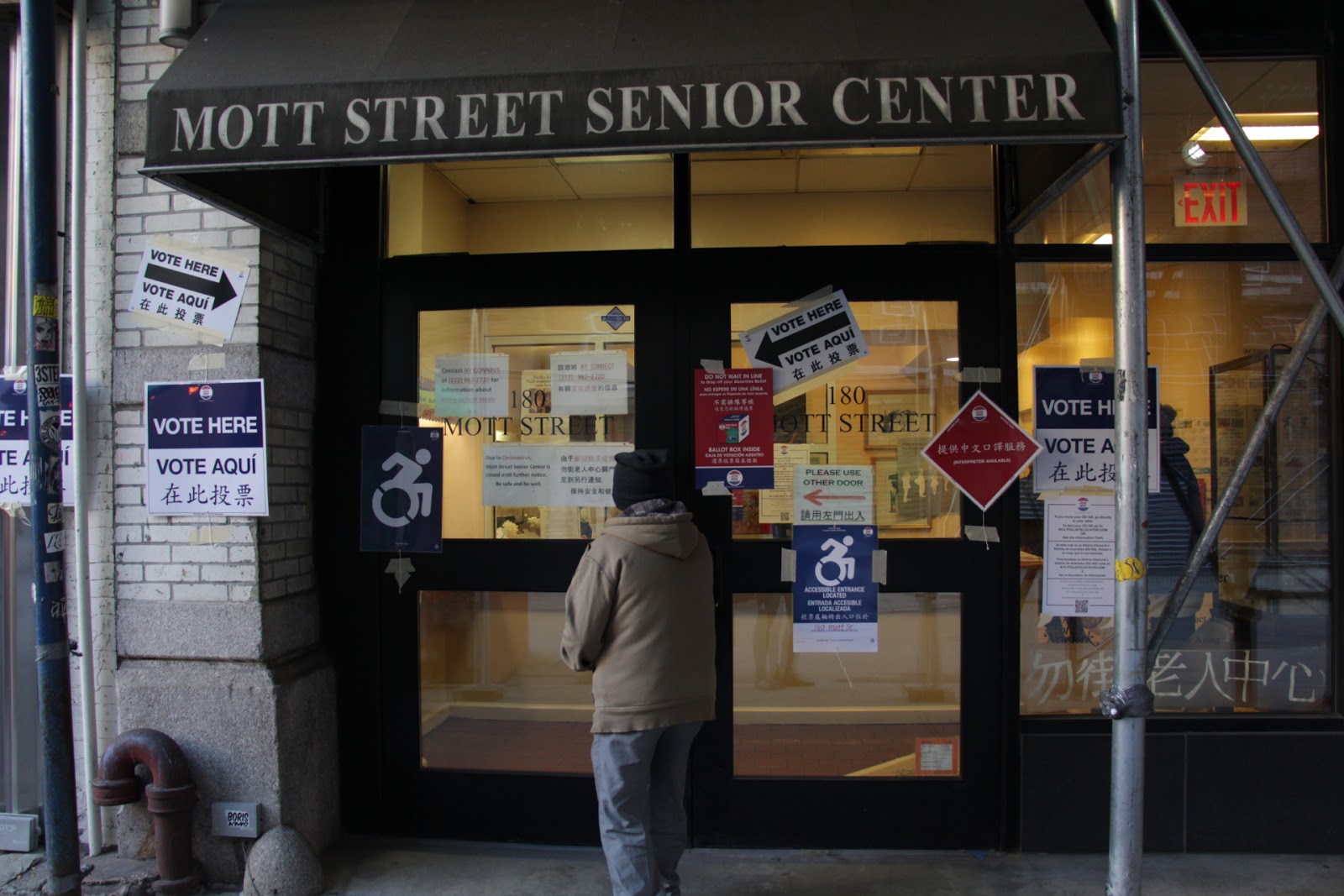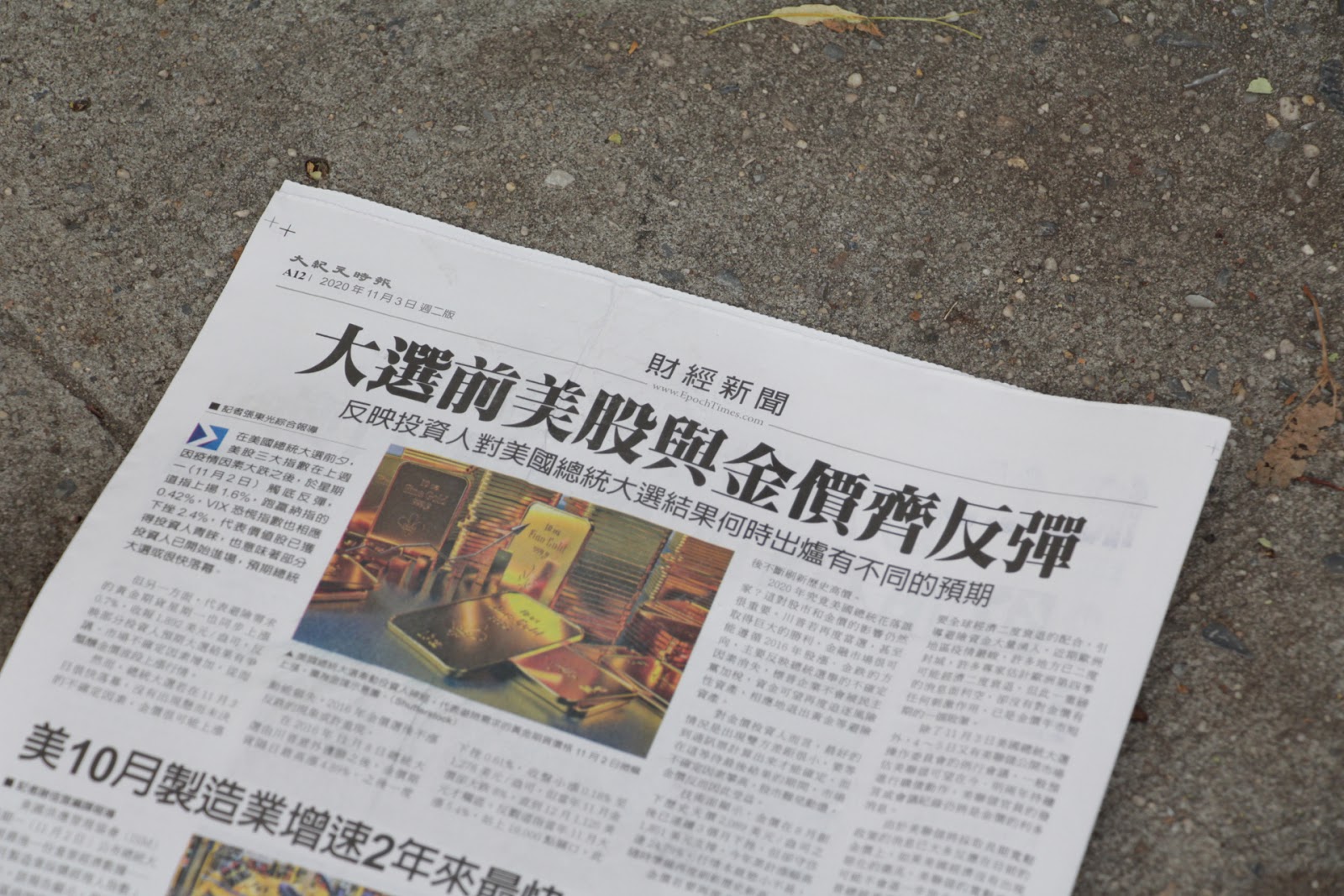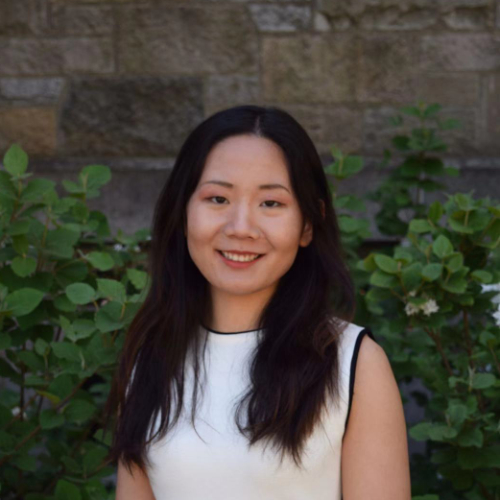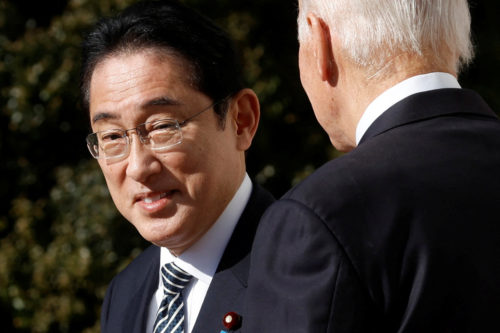Chinese Americans in New York vote, and brace for ‘long, drawn-out battle’ of election results
The China Project contributor Zijia Song visited polling locations in Chinatowns across New York City and followed up with voters for their thoughts about the election. This is what she found.

On Election Day, I visited polling stations at multiple Chinatown locations across New York City to talk to Chinese-American voters about their thoughts on the election. Most people I met at in-person polling stations were conservative voters: this is probably because Democratic voters were more likely to have voted by mail.
At 6:15 a.m., Manhattan’s Chinatown was still waking up to the first glimmer of dawn. Bakers had just started arranging rows of egg tarts and lotus seed custards in display cases. A small steamed bun shop stirred with activity, and promised to soon fill the street with the smell of cooked pork and vegetables. An orange cat gingerly sniffed at bags of bean sprouts that might have later featured in stir-fried dishes.
At the Manhattan Civil Court, a local polling station, a line had already stretched out and wrapped around the corner of the building. Polling sites in New York opened at 6 a.m. on Election Day. Many voters at the head of the line said they arrived 15 minutes before polls opened to cast their votes in this year’s high-stakes presidential election.
David Lew, a former internet technician, was surprised by the line. In previous years, he had always voted at the civil court location, and was able to go in and out without waiting. Having lost his job a few months ago and witnessed the desperate economic situation of many Chinatown small businesses during the pandemic, Lew hopes for a better economy — which he thinks Trump is more likely to deliver.
“New York is very quick to do shutdowns and lockdowns, and that could hurt the economy,” Lew said. “Trump just tries to say that things are overblown.”
Miles Eng, an architect for the city’s Department of Buildings, was reading the day’s newspaper when he was waiting in line. When asked if he would divulge whom he planned to vote for, he replied, “As long as you don’t get upset.” A passionate Trump supporter, Eng said that under the current president, the American economy had boomed, most notably reflected in his growing retirement funds.
“I couldn’t believe it,” he said. “I practically saw $100,000 more in my retirement plan.”

Election Day rolled out slowly in Sunset Park, Brooklyn’s largest Chinatown. While most restaurants were still closed at 10:30 a.m., fruit vendors spread out their produce and looked intently at passersby.
Xinmin Qiang was working as a Mandarin interpreter at St. Agatha’s church, a Sunset Park voting site. He moved to the U.S. in 2008, and has been closely following American politics ever since. On the morning of Election Day, voters that required Qiang’s interpretation services were mostly elderly, and more conservative than liberal. He observed that they were only familiar with presidential candidates, and had little idea about the names of congressional candidates on the ballots. These voters, Qiang said, would typically check a whole row of candidates, as long as they are from the party they preferred.
For himself, Qiang said that choosing which candidate to vote for has been a struggle. “I would have voted for Obama if I could vote in 2008,” he said, but he saw both the 2016 and 2020 elections as a situation of “choosing the lesser of two evils.” This year, he thinks that neither party’s candidate will be able to improve the fortunes of Chinese people in the U.S. But he ultimately chose Trump, preferring his emphasis on law and order.
“Voting for Trump is a very difficult decision for me,” Qiang said. “On the one hand, I like that he supports the NYPD and keeps law and order. On the other hand, he’s not friendly toward Chinese Americans, either, calling COVID-19 a ‘Chinese virus.’”
“Voting for Trump is a very difficult decision for me…On the one hand, I like that he supports the NYPD and keeps law and order. On the other hand, he’s not friendly toward Chinese Americans, either, calling COVID-19 a ‘Chinese virus.’” —Xinmin Qiang
“I don’t think Biden’s running mate will be friendly to Chinese Americans,” Qiang further explained, implying that since Kamala Harris has Indian heritage, she would support policies primarily benefiting the Indian community, rather than the Chinese one. Qiang referred to the Fairness for High-Skilled Immigrants Act of 2019. The bill proposes to end the per-country caps for employment-based Green Cards and has been supported by Utah Senator Mike Lee, who said it would benefit Indians, some of whom face wait times of up to 200 years for Green Cards.
Many Indian immigrants welcome the bill, but many in the Chinese-American community, especially new immigrants, have seen the bill as harmful for the future prospects of Chinese immigrants in America.
When asked about the implication of the election results for U.S.-China relations, Qiang said he believes that Trump puts all his political moves out in the open, whereas Democrats may deal under the table while keeping a friendly facade. “Just like when Hillary treated China like boiling a frog in tepid water,” he said. “That’s why I really disliked her.”
Pan, a young Chinese immigrant who came to the U.S. in 2002, just voted for Biden. She did not like either of the two major party candidates for president, but that between the two, she “definitely can’t choose Trump.” Pan said that under the Trump administration, U.S.-China relations had deteriorated, and that Trump, as a white supremacist, “treats everyone as an enemy.” Biden, on the other hand, may do something different.
Pan also took issue with Trump calling the coronavirus the “China plague” and “Chinese virus.” She added, “As a president, he doesn’t think before he speaks.”
A first-time voter, Pan felt relieved walking out of the polling station. “I thought it was going to be a complicated process. But it was pretty easy,” she said. “It feels good that I did my small part as a citizen of the country.”

On Tuesday evening, Lew went to bed early and blocked out all news about the election. “I don’t want to watch it, too nerve-racking,” he texted. But at 2 a.m., he received a message from his brother, saying that Trump had won. Trump had prematurely claimed victory in a speech from the White House and made unsubstantiated claims about voter fraud. Lew was skeptical, and after quickly searching the internet, realized that the election was not over.
“I have this feeling that it’s going to be a long, drawn-out battle,” Lew sighed. “There’s going to be contention. It’s going to be scary. There could be a lot of violence. Even if they have the results, people are still not going to accept it if it’s not how they see it.”
Like Lew, Eng also went to bed early, knowing that there might not be a clear result on Tuesday night. He woke up the next morning to a neck-and-neck race, and was a little surprised that Biden had done so well. He said that he suspected “shenanigans” and “cheating,” particularly in parts of Pennsylvania by the Democrats.
“I have this feeling that it’s going to be a long, drawn-out battle…Even if they have the results, people are still not going to accept it if it’s not how they see it.” —David Lew
Most voters I talked to said that they would be closely monitoring the outcome of the election. But Angela Zou, a teacher at the Chinatown Head Start child care center in Manhattan, seemed to have made her peace with whoever the winner may be. Unwilling to disclose who she planned to vote for, she said, “I think regardless of whoever wins, it shouldn’t affect how I face my own life or work, [we] just [need to] make do with what we have.”
Rather than fretting over the election, Zou has focused her attention on her job “to make sure the next generation is raised in a way where they can be at peace with whatever decisions that they make.” For her students’ Wednesday activity online, she asked the group of four-year-olds to decide what to bring to class for “show and tell” by voting among three options: books, toys, and snacks. One poll led to a tiebreaker between toys and snacks, so she organized a second round of voting.
“This way, they have an idea that their votes do matter. It affects our class,” Zou said. “It’s a very small scale of what’s supposed to happen on Election Day. They’ll just have to apply this 14 years later.”
And the winner of the “show and tell” election? Snacks.






